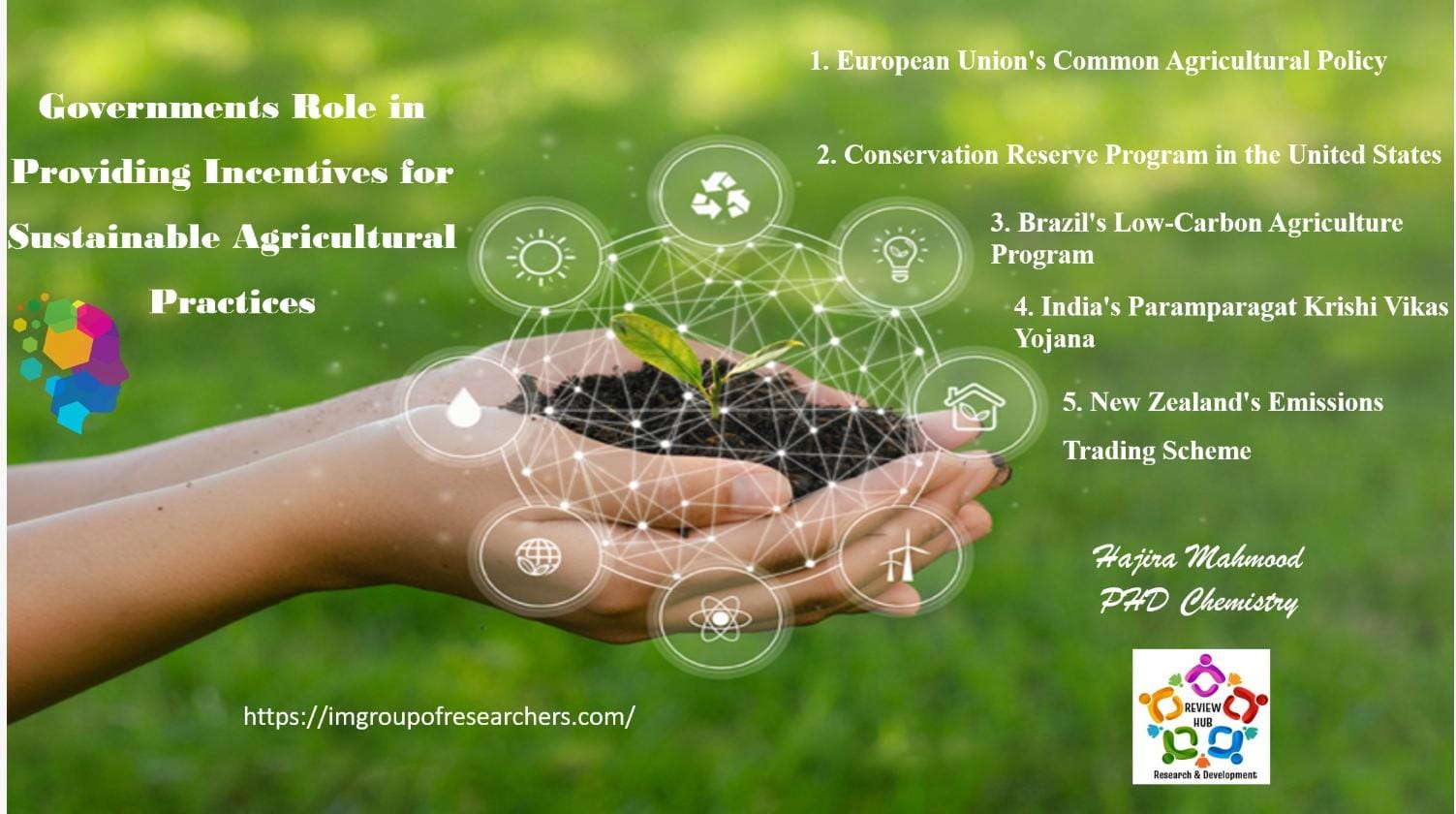This article covers the Governments Role in Providing Incentives for Sustainable Agricultural Practices in a comprehensive way.
Author: Hajira Mahmood
There have been several successful case studies and examples of governments providing incentives for sustainable agricultural practices that have yielded positive results. There are just a few examples of successful initiatives where governments have provided incentives for sustainable agricultural practices. These programs have demonstrated positive results in terms of environmental conservation, biodiversity preservation, soil health improvement, and farm productivity. By learning from these examples and tailoring incentives to regional contexts, governments worldwide can encourage widespread adoption of sustainable agricultural practices.

Here are a few notable examples:
1- European Union’s Common Agricultural Policy
The CAP has played a significant role in promoting sustainable agriculture in Europe. It provides financial incentives for farmers who adopt environmentally friendly practices, such as organic farming, agroforestry, and crop diversification. The CAP has successfully incentivized farmers to transition towards sustainable practices, resulting in improved soil health, reduced chemical inputs, and increased biodiversity on European farms.

2- Conservation Reserve Program in the United States
The CRP is a voluntary program that provides financial incentives to farmers in the United States to convert environmentally sensitive cropland to native vegetation, such as grasslands or forests. This program has resulted in the restoration of millions of acres of land, reducing soil erosion, improving water quality, and providing habitat for wildlife.

3- Brazil’s Low-Carbon Agriculture Program
The ABC Program in Brazil provides financial incentives and technical assistance to farmers to adopt sustainable agricultural practices, such as no-till farming, agroforestry, and integrated crop-livestock-forestry systems. This program has helped reduce greenhouse gas emissions, improve soil health, and increase agricultural productivity in Brazil.

4- India’s Paramparagat Krishi Vikas Yojana
PKVY is a government scheme (Governments Role in Providing Incentives for Sustainable Agricultural Practices) in India that promotes organic farming practices by providing financial incentives to farmers and groups who adopt organic farming methods. This program has successfully incentivized thousands of farmers to transition towards organic agriculture, enhancing soil health, reducing chemical inputs, and improving farm incomes.

5- New Zealand’s Emissions Trading Scheme
New Zealand’s ETS includes the agricultural sector and provides incentives for farmers to reduce greenhouse gas emissions through efficient land and herd management practices. The scheme encourages farmers to adopt practices like nitrogen management, nutrient budgeting, and precision agriculture, leading to sustainability improvements and emissions reductions.

Also read: Implementation of Sustainable Agricultural Practices in Different Parts of the World
Follow Us on

